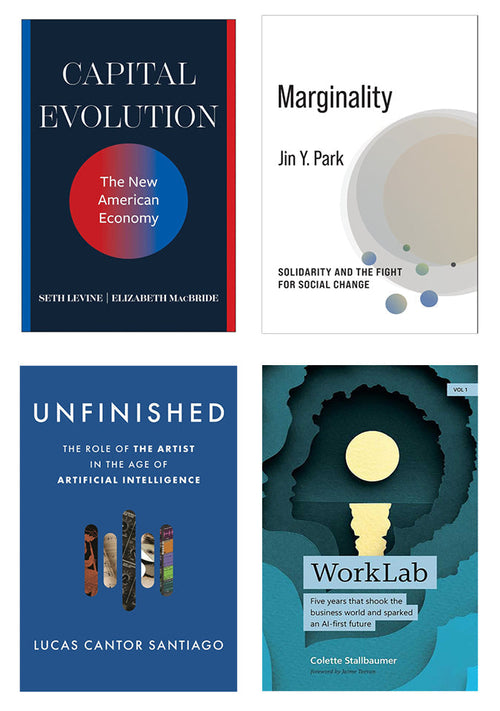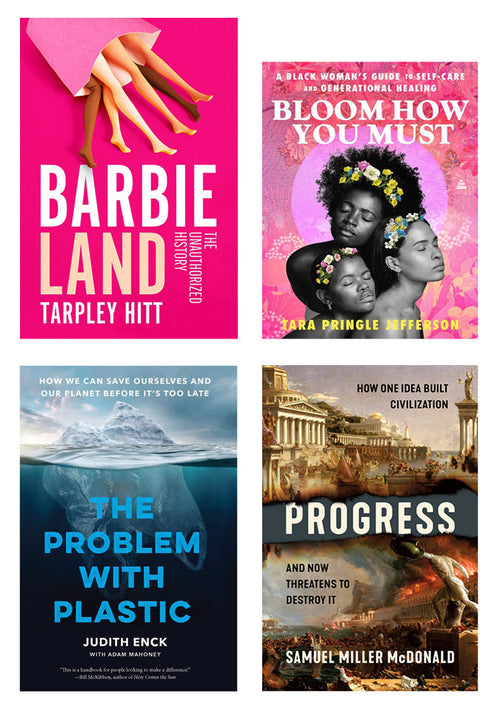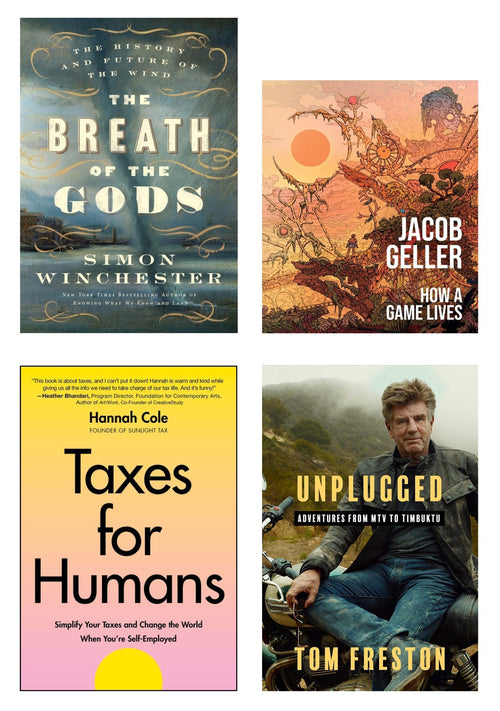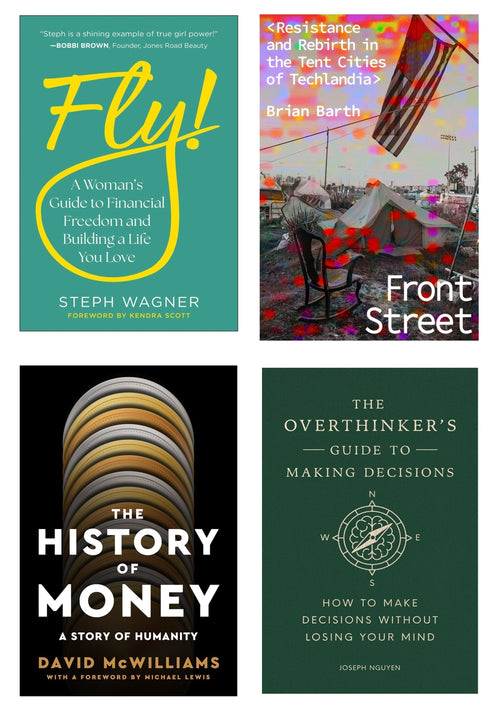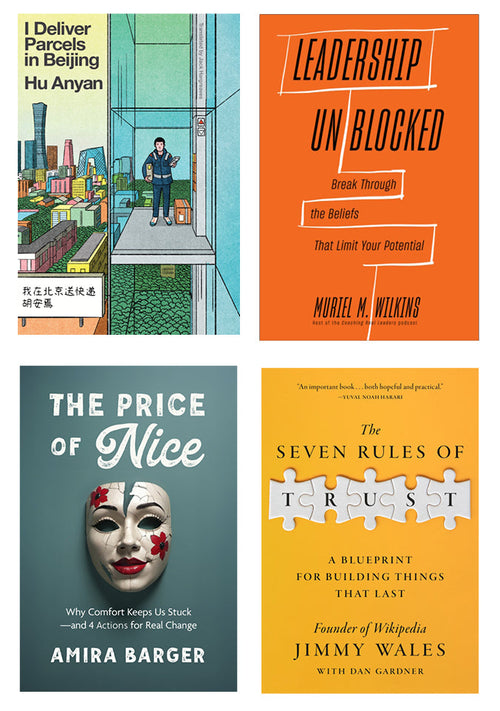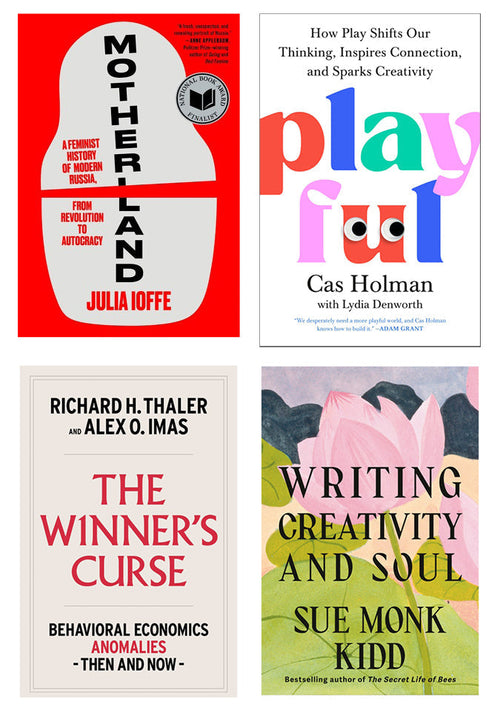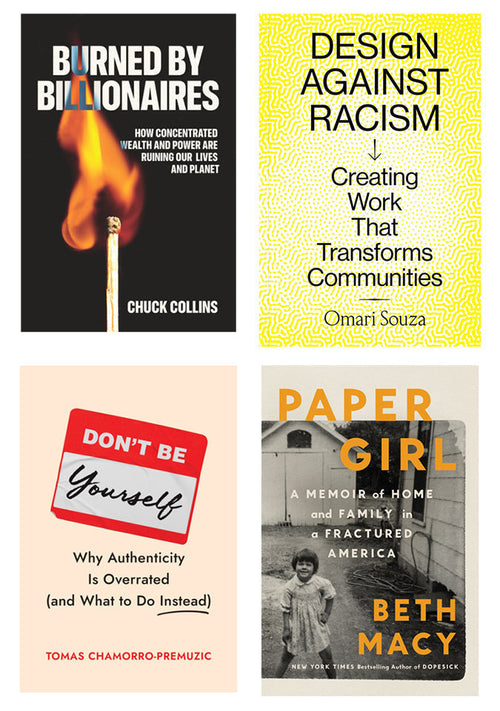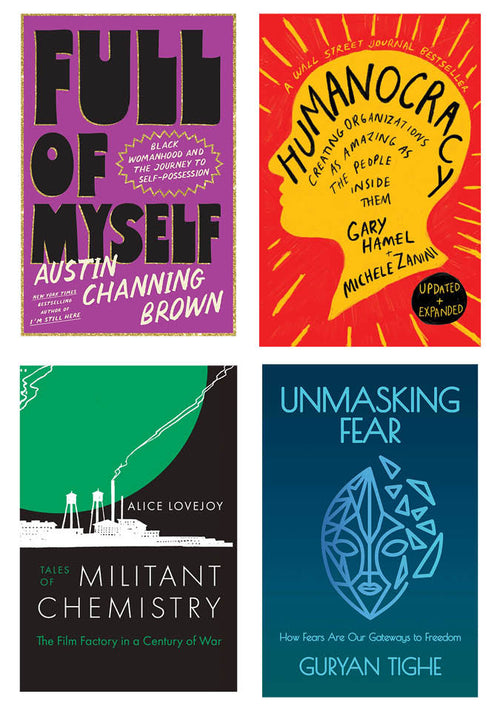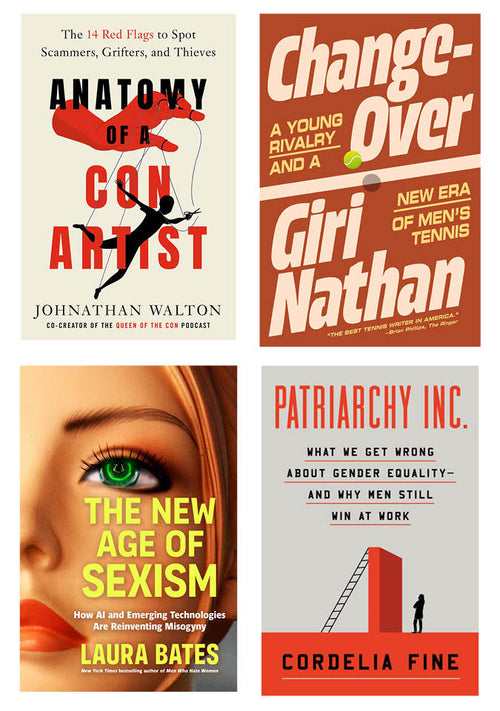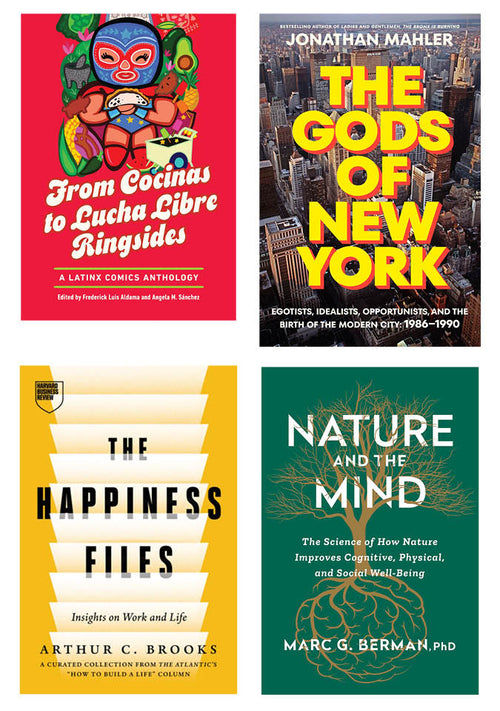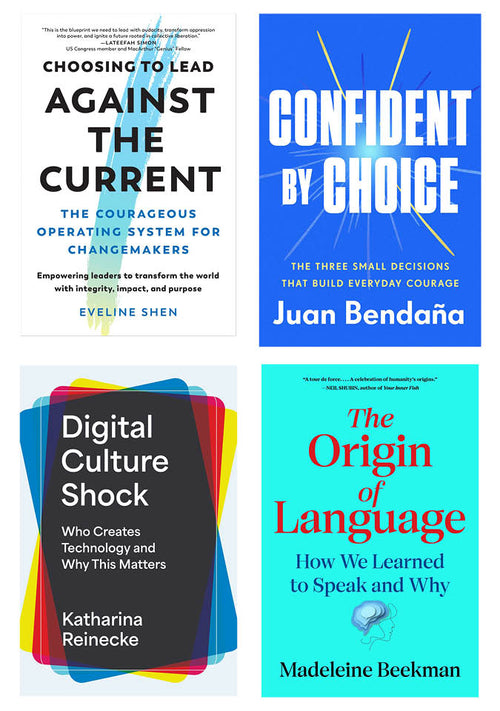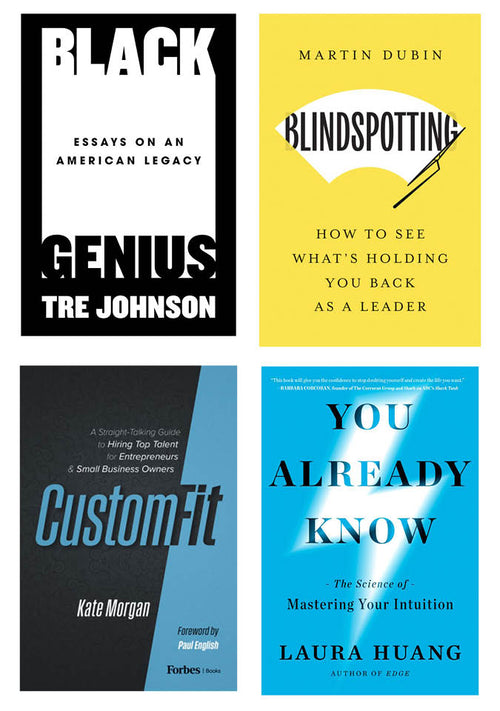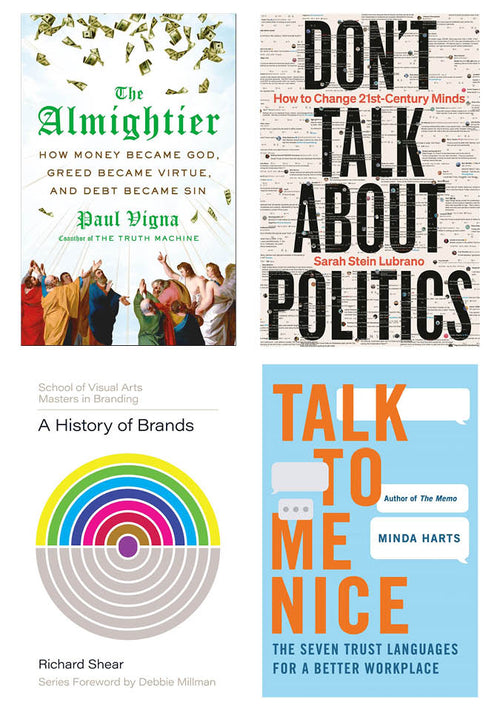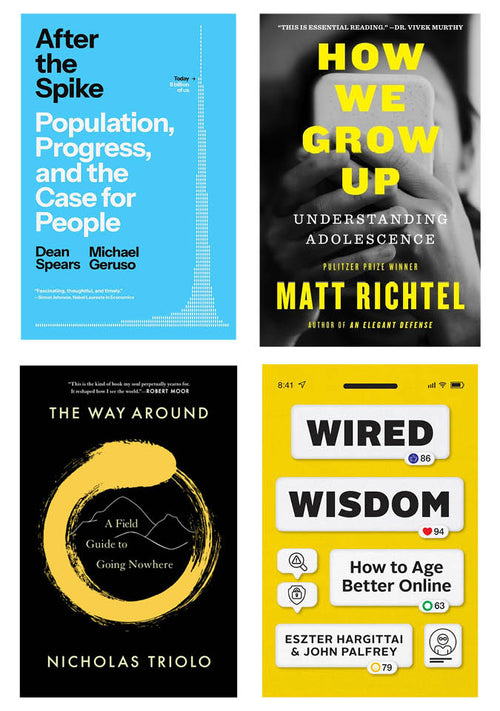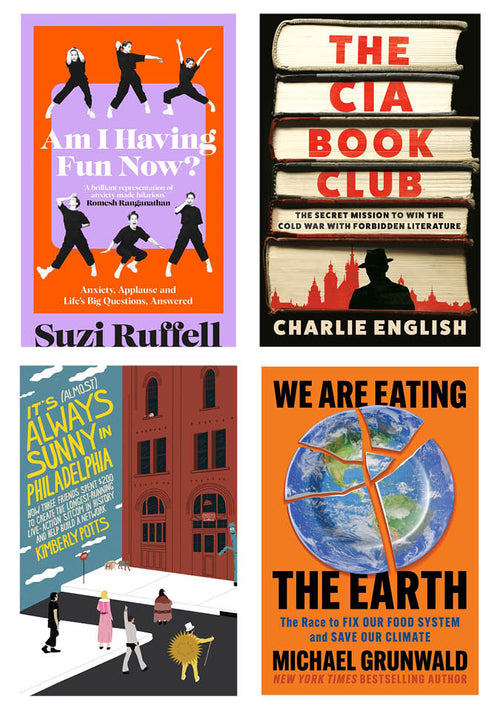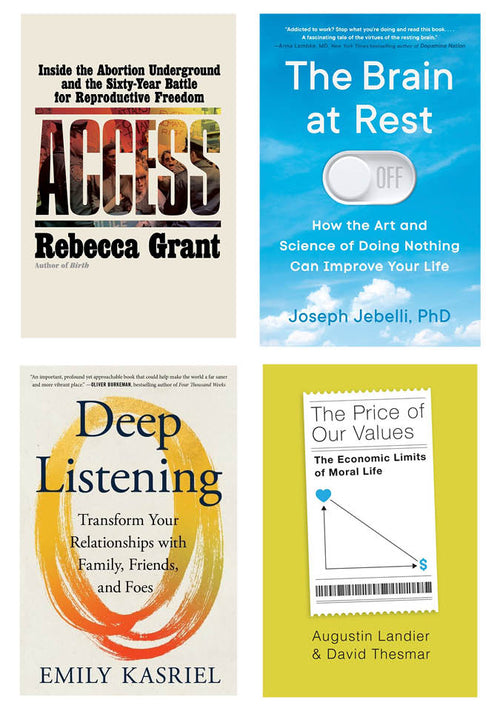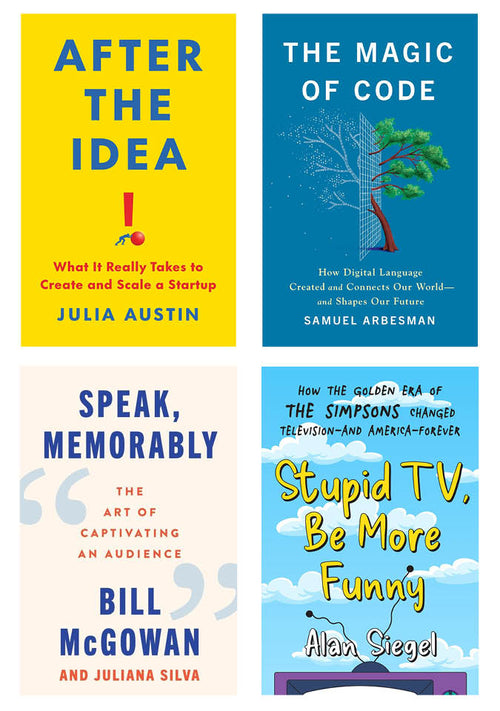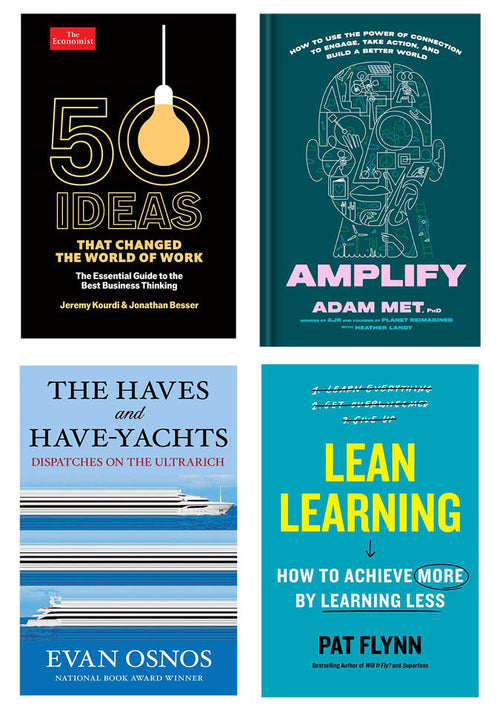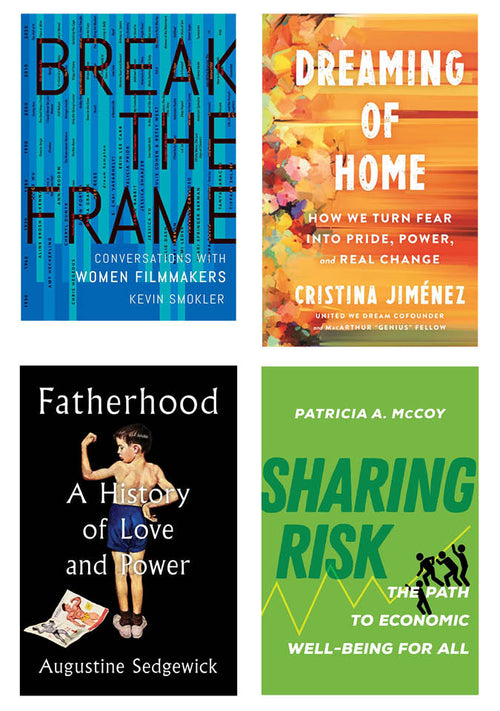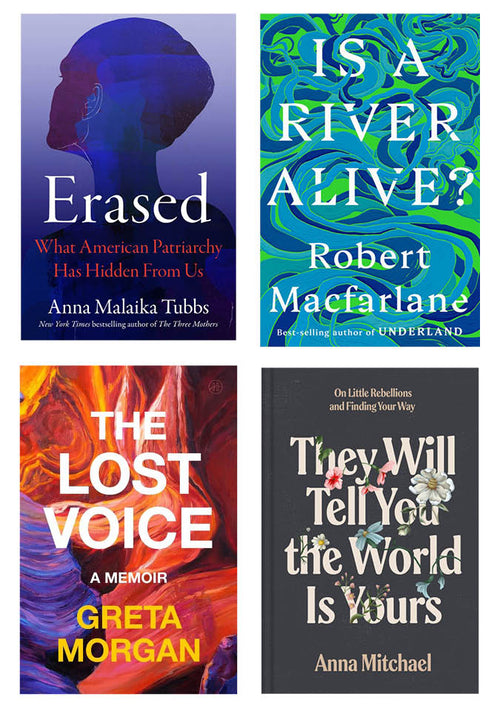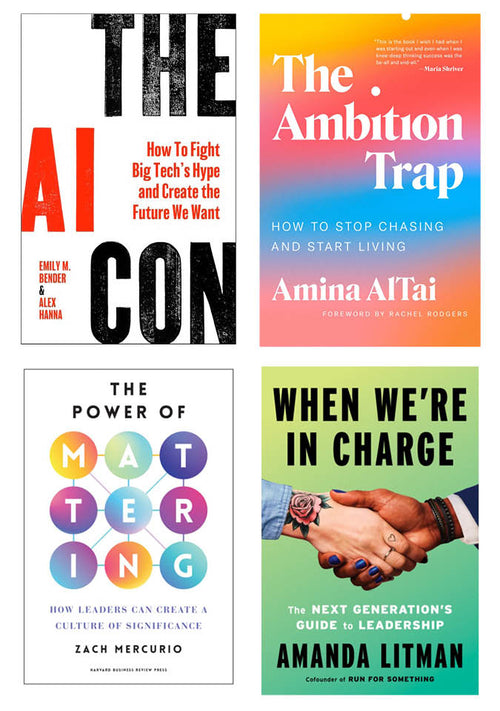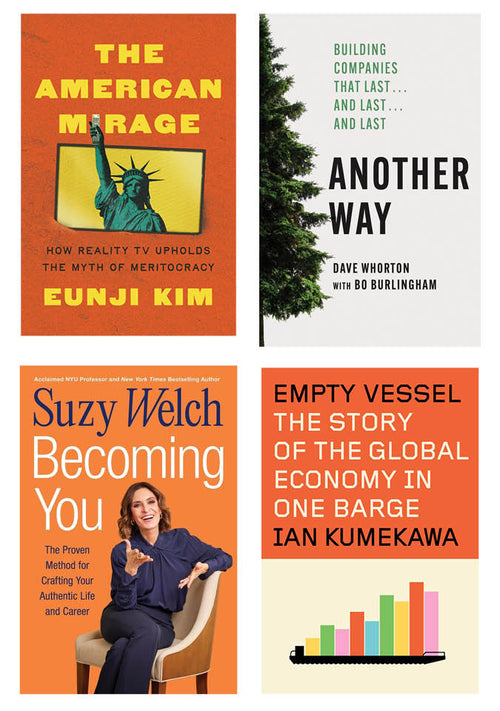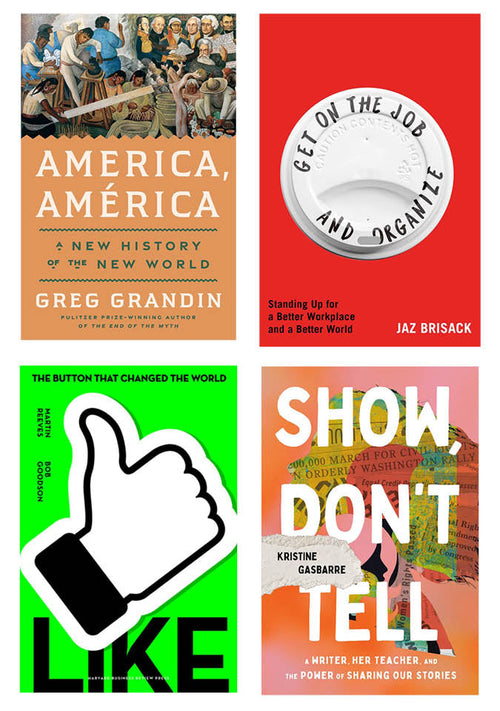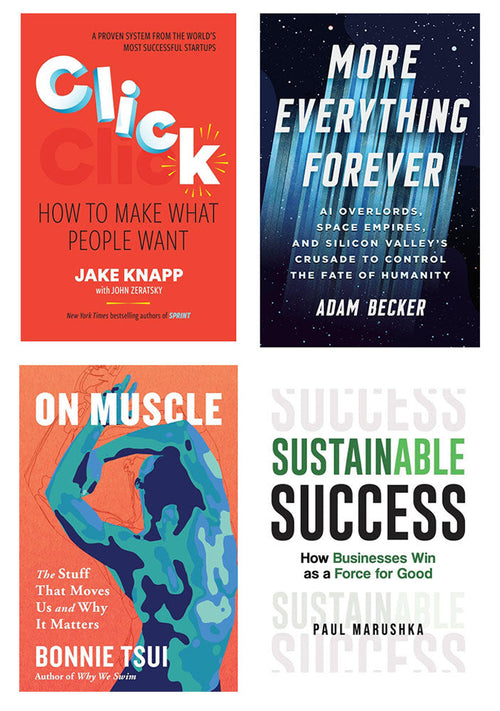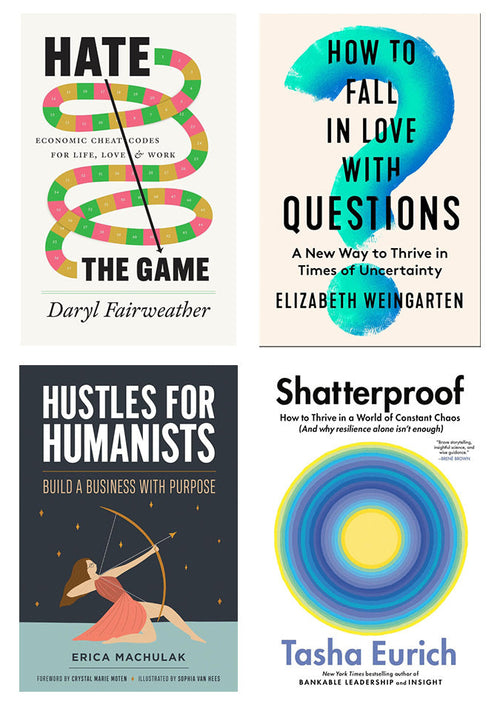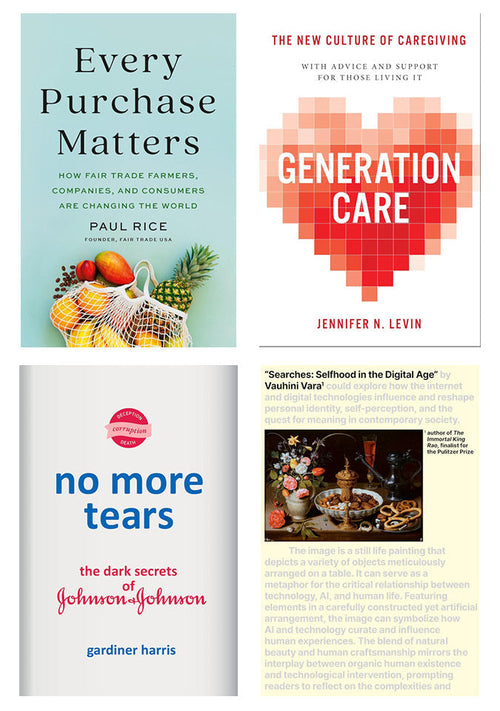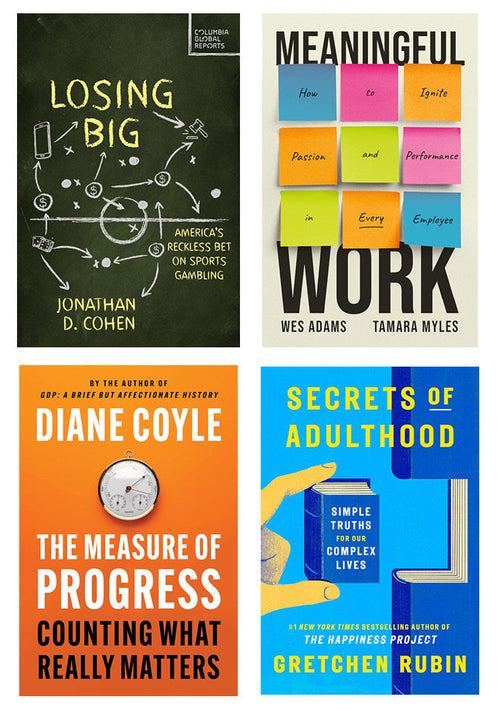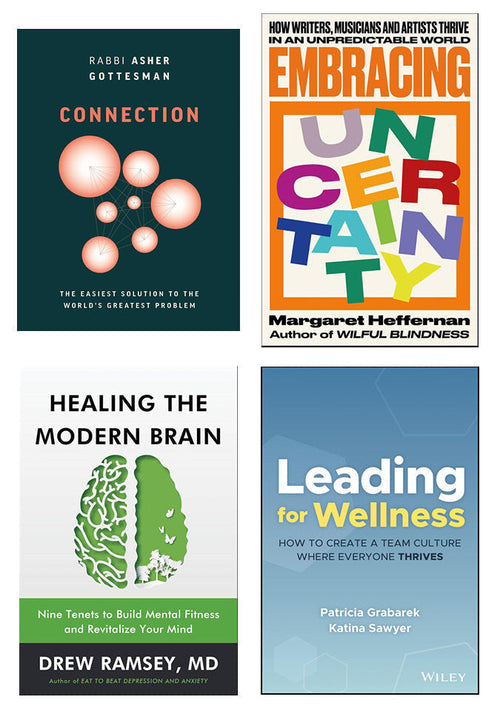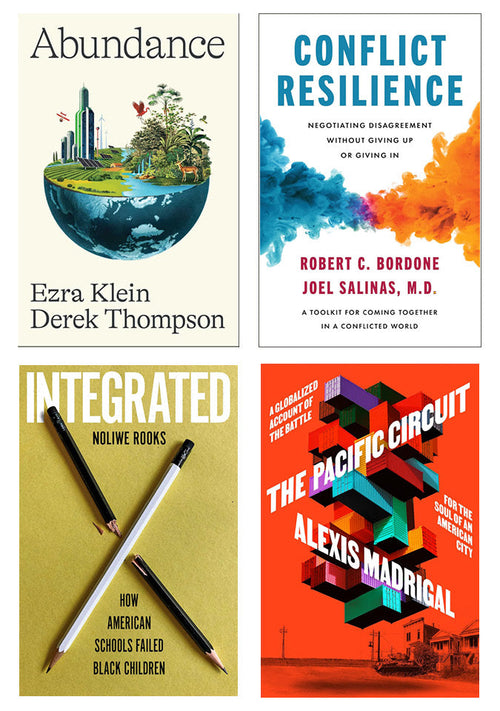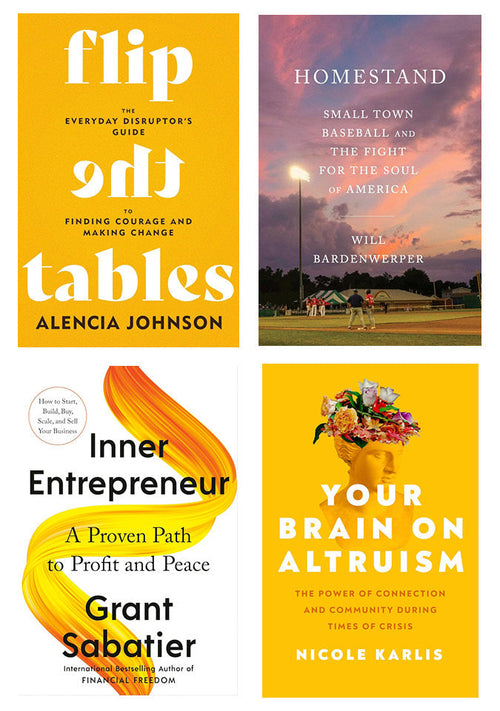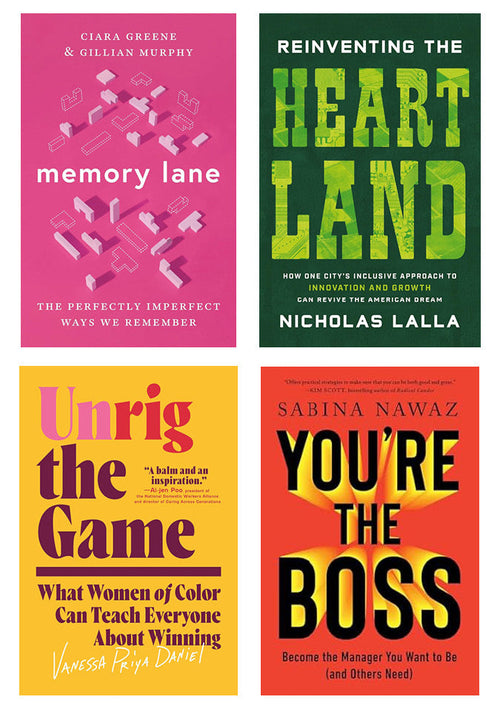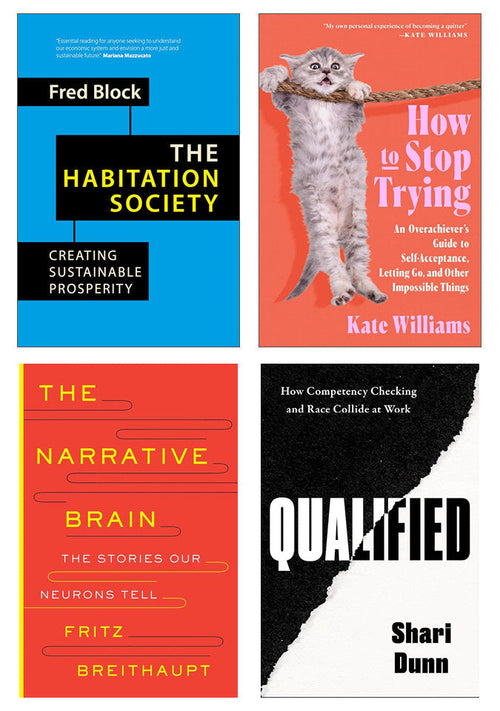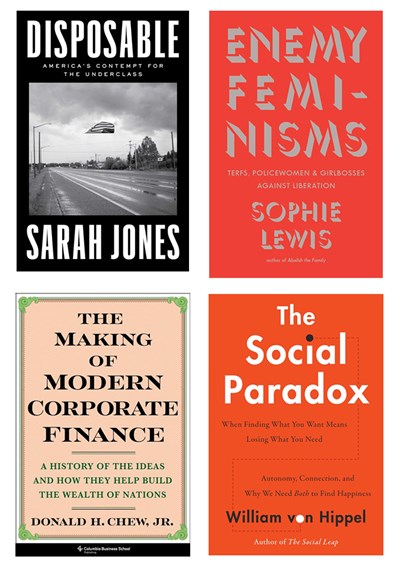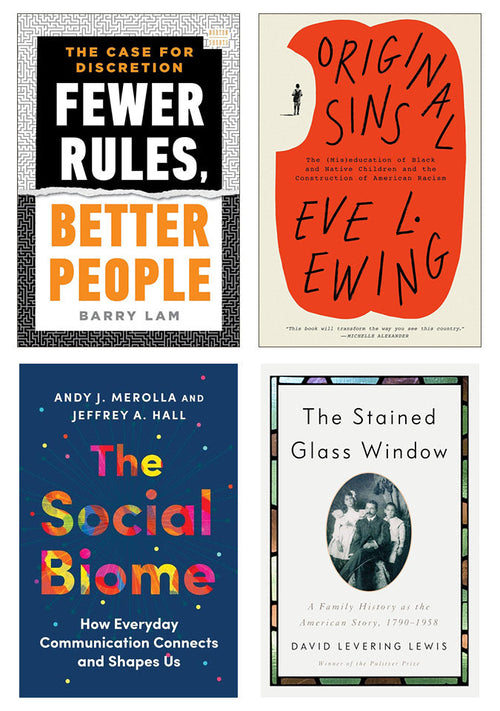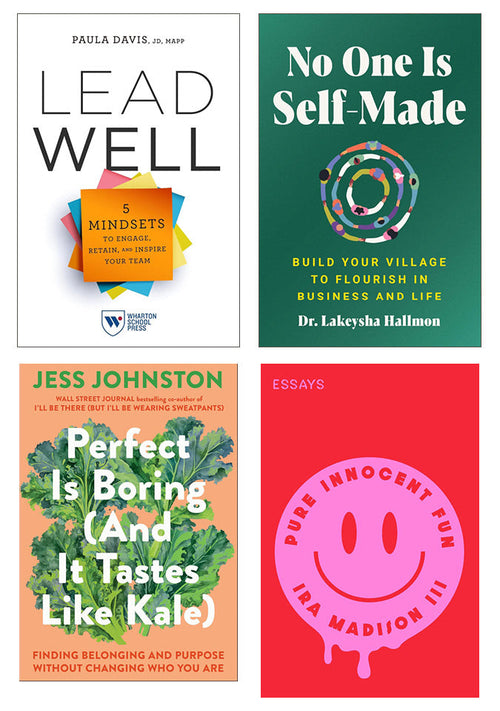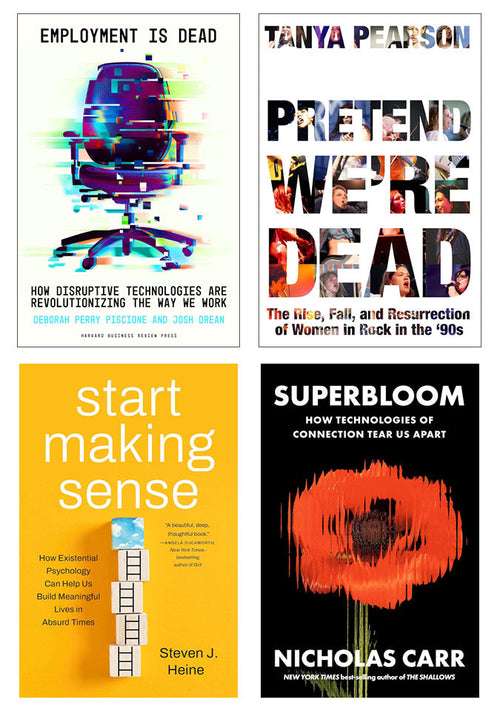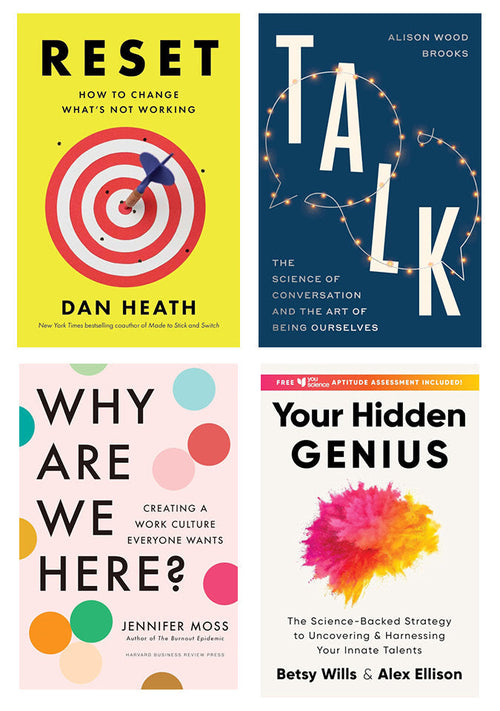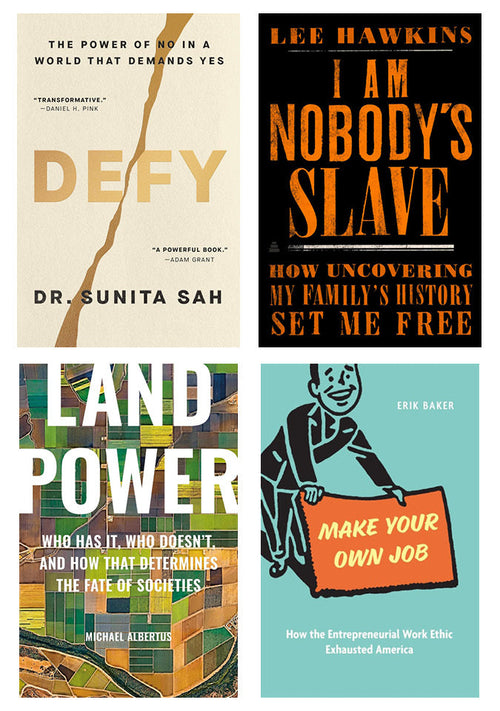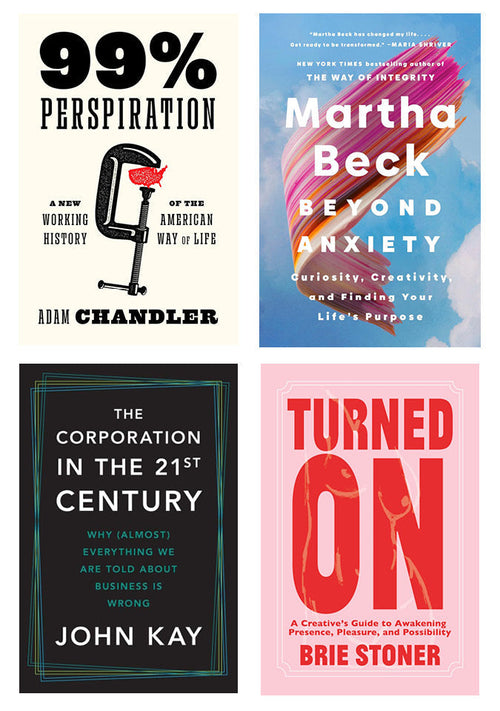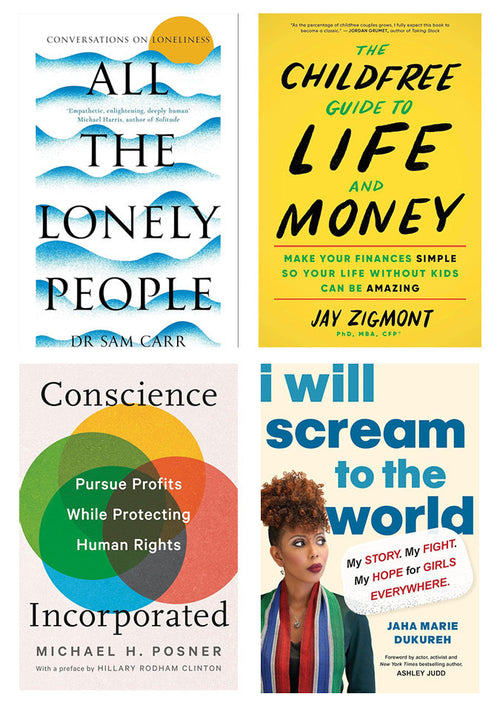Books to Watch | July 7, 2020
Each and every week, our marketing team—Marketing Director Blyth Meier (BRM), Digital Marketing Specialist Gabbi Cisneros (GMC), and Editorial Director Dylan Schleicher (DJJS)—highlights five new books we are most excited about.
This week, our choices are:

Dewey Defeats Truman: The 1948 Election and the Battle for America's Soul by A. J. Baime, Houghton Mifflin Harcourt
It feels like a distant memory, but the issue of universal health care, and how to best attain it, was one of the most contentious in this year’s Democratic primary. But it is not a new debate. The idea of universal health care was first introduced by Harry Truman in the 1948 campaign. More specifically, it was in his introduction of the “21-Point Program for the Reconversion Period” following World War II that really kicked off the midterms of 1946 (in which Truman’s Democratic Party was resoundingly defeated), and set his ambitious domestic policy plan heading into the 1948 presidential election. In it, he also called for an almost doubling of the minimum wage, outlawing racial and religious discrimination in hiring, increased aid to farmers and small businesses, an expansion of Social Security, increased federal aid to war veterans, fair housing legislation, a public works program to invest in our shared national infrastructure, and conservation funding to protect our shared natural resources. The very fact that these are all issues that need urgent addressing today is a reminder that, although circumstances have changed, not enough progress has been made. All of which is why I am finding it so fascinating to read A.J. Baime’s new book about the 1948 presidential campaign, to see how so many of these debates have evolved (or not so much) from the four men that were involved in that contest. Because, although it is largely a story of Truman and his surprise victory, A.J. Baime’s new book takes us inside each:
Dewey Defeats Truman will bring readers inside the situation rooms of four campaigns: Harry Truman’s Democratic Party, Thomas Dewey’s Republican Party, Henry Wallace’s Progressive Party (which was largely controlled by a secret cell of Communists), and Strom Thurmond’s States’ Rights Democratic Party (the “Dixiecrats,” a campaign of unapologetic white supremacy).
In the midst of a pandemic and economic depression we haven’t seen the likes of in a century, and an uprising for racial equality larger than any since the Civil Rights Era, and as we face the realities of climate change, reading of Truman’s electoral victory is a reminder that we’d be better positioned to address each of these if his larger campaign for a “Fair Deal”—which his 21-Point Program ultimately became after his election—had succeeded. The world faced an existential crisis even after the war was won. The economic growth that we experienced put a band-aid on some of the issues the Fair Deal was written to address, but the conditions underlying them remain, and are again exposed as deep wounds. Perhaps, in the face of so many new existential crises, we can stop talking about them so incrementally, and implement laws that would finally help address a lack of universal healthcare, economic inequality, racial injustice, and environmental degradation, to see them as the policy choices they are rather than personal choices people are making. (DJJS)
And, if you need a drink while thinking it over or reading the book, try Bess Truman’s favorite Old-Fashioned recipe.
Lady Romeo: The Radical and Revolutionary Life of Charlotte Cushman, America's First Celebrity by Tana Wojczuk, Avid Reader Press
She was born into one America, and helped create another. If she hadn’t been largely forgotten, she would have surely become an icon of later feminists and actors, and possibly of queer culture. She made her own career and her own money (and a lot of it) at a time when it was uncommon for women to do so. She was, as she said, “her own business-man” in doing so. She made up her own mind and her own way in life. She wore breeches offstage, and played men’s roles—”breeches parts”—onstage. She was Charlotte Cushman, who I admit to knowing nothing about until this last week, and who I am now fascinated with.
If there was such a thing as celebrity in America at the time of her birth, it would have been in the public exaltation of the founders and people of the frontier who spawned folktales. Cushman, born and raised in the American aristocracy of the day, became a working class hero. The artistic and intellectual circles she ran in included the person who coined the term “feminism,” but it was she who may have been the most clear example of women’s independence at a time when there was almost none of it in the world. Born at a time when women weren’t allowed in the theatre unaccompanied, she became its brightest star and most profitable attraction. Educated by the most famous Transcendentalists, she would help give rise to “a uniquely American theatre,” and make her celebrity in absolute devotion to her art. Walt Whitman, Louisa May Alcott, and Nathaniel Hawthorn were inspired by her, and it was…
"After watching her wring the blood from her hands as Lady Macbeth, President Lincoln walked from that theatre to his desk, where he took up his draft of the Gettysburg Address and wrote about the boys he had sent to their death, resolving again and again 'that these dead shall not have died in vain.'"
Tana Wojczuk has resurrected and hopefully restored this great woman to popular consciousness, and writes the tale with a brilliance you’d expect of someone whose writing has graced the pages of Guernica, Tin House, The Believer, and Lapham’s Quarterly. (DJJS)
Read the author’s piece in Smithsonian Magazine about how Charlotte Cushman Broke Barriers on Her Way to Becoming the A-List Actress of the 1800s.
Rose's Ice Cream Bliss by Rose Levy Beranbaum, Houghton Mifflin Harcourt
July has arrived like a ball of fire here in our city—it’s already 90 degrees at 9 a.m.! Take this hot, sticky weather and combine it with the ripening sour cherries, mulberries, and raspberries in our backyards, and you’ll know peak ice cream season has arrived! How better to cool down my body and wake up my taste buds than Rose Levy Beranbaum, award-winning author of The Cake Bible, The Baking Bible, The Pastry Bible, The Bread Bible, and more. It turns out that the woman with a career built on baking is actually most fond of frozen desserts when the sweet tooth calls. In Rose’s Ice Cream Bliss, Beranbaum focuses her epic recipe-testing skills (she started her career as a writer for Cook’s Illustrated) and her passion for ice cream into the one ice cream cookbook you will ever need. This is a woman who has spent the last 30 years perfecting an ice cream based on her infamous cheesecake recipe, so I think you can tell she has your very best culinary goals at heart. She does an amazing job of teaching the basics here—from ingredients and equipment to methods and storing. Recipes come with variations and helpful hints (that she calls “scoops” LOL), and ends with chapters for toppings and ice-cream centric baking adventures—there’s even a recipe to make your own waffle cones! If you learn her master technique, you will have the ability to endlessly improvise with whatever is in season. Not that I can fathom a need to work beyond the gorgeous array of flavors presented here, with combinations that made me gasp (Dark Brown Sugar Ice Cream with Black Pepper, along with a variation for Sage Ice Cream), and an array of globally-inspired recipes (Turkish Stretchy Ice Cream, Suvir Saran’s Cardamom “Rice Cream” with Saffron Sauce, Thai Corn Ice Cream, and a halva-inspired Silken Black Sesame Ice Cream). And if the heat of summer has you wanting to combine your drinks with desserts, she offers the holy grail: Red Wine Ice Cream. People, the dream is real—we really can have it all! How lucky we are to have Beranbaum’s cookbook land in our laps during this strangest of summers. (BRM)
Listen to Rose and her collaborator Woody Wolston on the Life’s a Banquet podcast.
Say It Louder!: Black Voters, White Narratives, and Saving Our Democracy by Tiffany Cross, Amistad
"Say their names!" protesters proclaim in the hope that the Black victims of police brutality will not be forgotten, and that their names and memories will continue motivating the movement towards policy changes that protect and uphold their right to live.
“Say It Louder!,” encourages Tiffany Cross’s new book, which serves as "a primer in Black political thought and behavior." Though it was written a year before the Black Lives Matter movement took to the streets following the death of George Floyd, Cross's defiant and eye-opening text fits the present situation well as the world continues unpacking, examining, and hopefully defenestrating the many layers of racism and White supremacy in America.
America is a democracy and so all people must take responsibility for the outcomes of this democracy, no matter their gender, race, or ethnicity. It's difficult for anyone to speak up, though, when the overwhelmingly white voices of mainstream media incorrectly frame or completely ignore violence against Black people, and doubly difficult to make a difference when political candidates demonstrate "a gross lack of understanding about how to engage Black voters," cases like the water poisoning in Flint Michigan (where 42% of residents live below the poverty line, "with Black people making up the majority of this number”) being abandoned by the news and Black voters still being condemned for not voting. This book tackles a ton of contemporary issues in politics and our everyday lives, and I can't do it justice in a few paragraphs. I just hope that, if you are Black, it encourages you to take advantage of this time we are in to use your voice. And I hope that, if you are white, you listen.
As Cross writes in the dedication:
"For the millions of Black people, both living and dead,
whose lived experiences helped to shape and save this
democracy since its inception. You are not invisible."
(GMC)
An exclusive interview with Tiffany Cross was just published on Essence magazine’s website about the upcoming election and her guest-hosting debut on AM Joy.
Separated: Inside an American Tragedy by Jacob Soboroff, Custom House
Every update surrounding the actions (and inactions) taken to protect marginalized communities has been keeping thousands of people's lives and emotions bouncing back and forth in a problematic and liminal space. Three weeks ago there were cries of joy for the extension of the DACA program and just this morning there are cries of sorrow as the Trump Administration orders foreign students to leave the country if they are not taking in-person classes. Both of those actions heavily impact younger generations, so if youth (of all races, ethnicities, genders, and origins) are our future, we should be fighting to care for and protect it more than it feels we are right now.
Separated: Inside an American Tragedy concurs with this unpleasant outlook on the United States government. Author and NBC News and MSNBC correspondent Jacob Soboroff compiles his first-hand observations of the Texas holding facility in 2018 with interviews, documents, and further research on the child-separation crisis at the Mexico-US border in this tense, haunting, and relevant book. The title does not just refer to the breaking apart of families, but also:
"the word describes a deep understanding of physical and mental pain—and unspeakable horror they were made to endure. For many others, it describes the opposite: an inability to comprehend how Donald Trump's self-inflicted American tragedy was able to happen, including, for a time, myself. The existence of both of those realities is only understood by facing the truth about our country—and ourselves."
While it is easy to continue scrolling past the darkest of headlines that pop up in our emails and newsfeeds, Separated is a text that I simultaneously couldn't put down nor quite stomach. Soboroff's skillful storytelling highlights individuals directly impacted by the cruel policies ("children separated from their parents in two of four 'pods,' in Border Patrol lingo. To anyone else, they'd be called cages.") as he digs into the many questions surrounding the inhumane family separation policies and actions at the border. Although President Trump's executive order may have officially ended the family separation policy, there is still much for us to understand about the issue if we are to be informed and ethical American citizens. (GMC)
“It’s not just in the Trump administration. Deterrence, which is what this policy was intended to be, has been the underlying philosophy of American border policy at least since the Clinton administration.” More from Soboroff on the ongoing family separation crisis in this article from Forward.
What we're reading away from work:
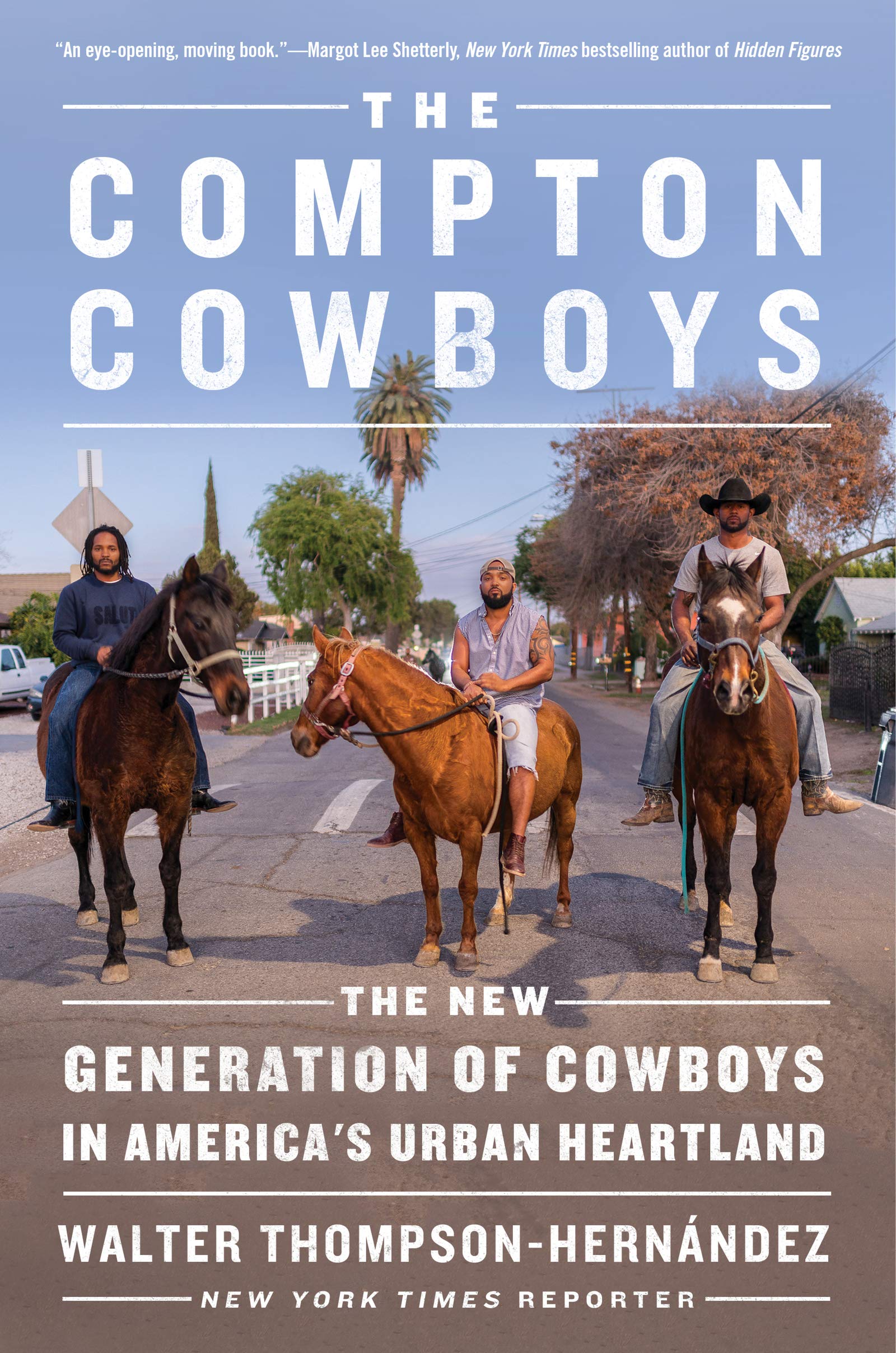 "I'm currently reading The Compton Cowboys: The New Generation of Cowboys in America's Urban Heartland by Walter Thompson-Hernandez and have always had a fascination with the urban cowboy and how the Compton Cowboys have influenced their neighborhood. Their saying that "Streets raised us. Horses saved us." is so powerful."—Mel Koenig, Accounting Specialist
"I'm currently reading The Compton Cowboys: The New Generation of Cowboys in America's Urban Heartland by Walter Thompson-Hernandez and have always had a fascination with the urban cowboy and how the Compton Cowboys have influenced their neighborhood. Their saying that "Streets raised us. Horses saved us." is so powerful."—Mel Koenig, Accounting Specialist

